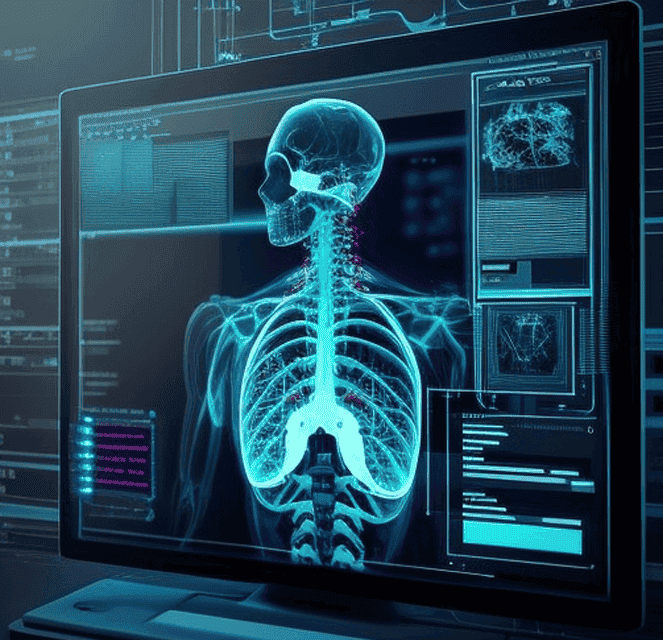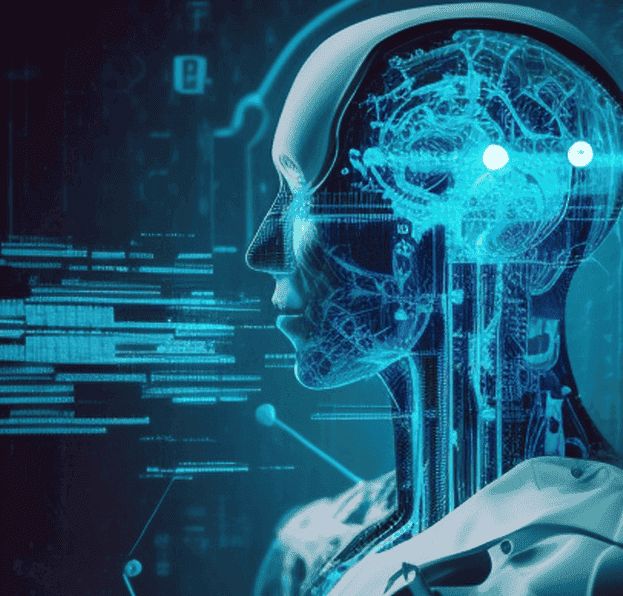Table of Contents
Artificial intelligence (AI) has the potential to revolutionize healthcare by enabling better patient outcomes, improving efficiency, and reducing costs. Healthcare providers increasingly use AI to enhance decision-making, improve patient care, and optimize resource allocation. This article explores how AI is transforming the future of healthcare.
Artificial intelligence Enhancing Diagnosis and Treatment
One of the most significant impacts of AI on healthcare is its ability to enhance the accuracy of diagnosis and treatment. AI can analyze vast amounts of data from medical records, patient histories, and test results to identify patterns and correlations that would be challenging for humans to detect. This analysis can help doctors make more informed diagnoses and develop personalized treatment plans that consider a patient’s unique medical history and genetic makeup.

For example, AI-powered diagnostic tools can help detect diseases like cancer at an earlier stage, leading to better treatment outcomes. Additionally, AI can help doctors identify potential drug interactions or adverse reactions, reducing the risk of complications and improving patient safety.
Improving Operational Efficiency
AI can also improve the operational efficiency of healthcare organizations, leading to cost savings and better resource allocation. For example, AI can help hospitals optimize staffing levels, reduce wait times, and allocate resources more effectively based on patient needs. AI-powered chatbots and virtual assistants can also help patients book appointments, manage medication schedules, and get answers to basic health questions, reducing the workload for healthcare staff and improving patient satisfaction.
AI can also help healthcare organizations to identify and address inefficiencies in their processes. By analyzing patient flow and resource utilization data, AI can help organizations identify bottlenecks and areas for improvement, leading to better patient outcomes and reduced costs.
Challenges and Considerations
Despite the significant benefits of AI in healthcare, there are also challenges and considerations to be aware of. One of the most critical challenges is the need to ensure the privacy and security of patient data. As AI requires access to vast amounts of sensitive patient data, there is a risk of data breaches and privacy violations. Healthcare organizations must ensure that they have robust data security measures to protect patient data.

Another consideration is addressing concerns around bias and transparency in AI algorithms. As AI is only as good as the data, it is trained on; there is a risk that AI algorithms could perpetuate existing biases and discrimination. Healthcare organizations must ensure that their AI systems are transparent and accountable and actively work to address any biases in the data.
The Future of AI in Healthcare
Artificial intelligence can potentially transform the future of healthcare by improving patient outcomes, enhancing operational efficiency, and reducing costs. However, there are also challenges and considerations to be aware of, such as ensuring patient data privacy and addressing concerns around bias and transparency in AI algorithms. By carefully considering these challenges and working to manage them, healthcare organizations can unlock the full potential of AI to enhance patient care and drive better outcomes.


